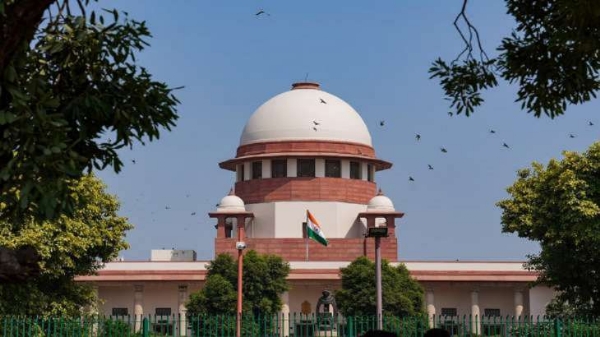Women, children main targets of foreign-funded religious conversions, PIL petitioner tells SC
Total Views |
New Delhi, December 13: In a major development, a petitioner who has filed a plea against religious conversions told the Supreme Court on Monday (December 12 ) that women and children are the main targets of “foreign-funded” religious conversion in the country.
In a written submission filed before a bench of Justices M R Shah and C T Ravikumar which is hearing a plea against religious conversions, PIL petitioner Ashwini Upadhyay referred to the legal vacuum on the issue and said this has led to the deployment of “unethical predatory conversion strategies” to convert socially and economically backward citizens.

“Petitioner submits that women and children are the main targets of foreign-funded missionaries and conversion groups but the Centre and the States have not taken appropriate steps to control religious conversion in the spirit of Article 15(3)”, the petition said.
Upadhyay asked the court to direct the central government and the states to seize “benami” properties and disproportionate assets owned by people and organisations involved in “fraudulent religious conversion.”
While hearing the PIL, the top court had on December 5 observed that religious conversion should not be the purpose of charity and forced religious conversion is a “serious issue” which is against the spirit of the Constitution.
Updhayay, in the written submissions, has sought various reliefs including a review of the rules made under the FCRA (Foreign Contribution Regulation Act) for foreign funded NGOs and individuals to curb alleged activities related to religious conversions.
The plea also sought stringent steps to control funding through hawala and other routes to further religious conversions.“Call upon the Law Commission of India to suggest suitable legislation and Guidelines to check unlawful fraudulent religious conversion,” it prayed.
It also sought a direction to the Centre and states to take steps to confiscate ‘benami’ properties and disproportionate assets of persons and institutions involved in “fraudulent religious conversion”.
“Petitioner submits that women and children are the main target of foreign funded missionaries and conversion groups but the Centre and the States have not taken appropriate steps to control religious conversion in the spirit of Article 15(3). The situation is alarming as many individuals and organizations are carrying mass conversion of socially and economically underprivileged and SCs-STs either by use of force or by allurement thus exploiting their poverty,” it said.
Referring to IPC provisions, it said, injuring or defiling a place of worship, deliberate and malicious act to outrage religious feeling, trespassing on a burial place or hurting religious sentiment etc. are considered as offences related to religion.
“However, religious conversion by intimidation, threats, luring through gifts, monetary benefits and by inducement; which are more serious offences relating to religion are not covered under Chapter-XV of the IPC,” it said. Wrongful religious conversion directly offends the right to life, liberty and dignity guaranteed under Article 21, it said.
“But, due to a legal vacuum, unethical predatory conversion strategies are commonly used in Delhi to convert socially and economically backward citizens. One method is material enticement by which economic, educational, medical or social assistance is offered on the condition that the person converts; another is the denigration of the person’s religion to make a new religion appear superior…Predatory proselytization tears apart the fabric of the communities where it occurs and has led to social disorder and unrest,” it said.
.
.


